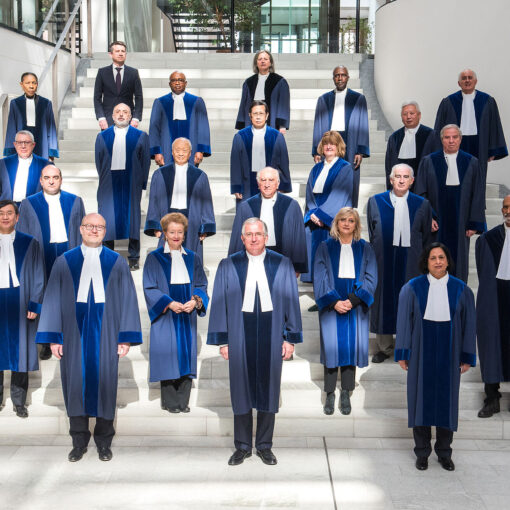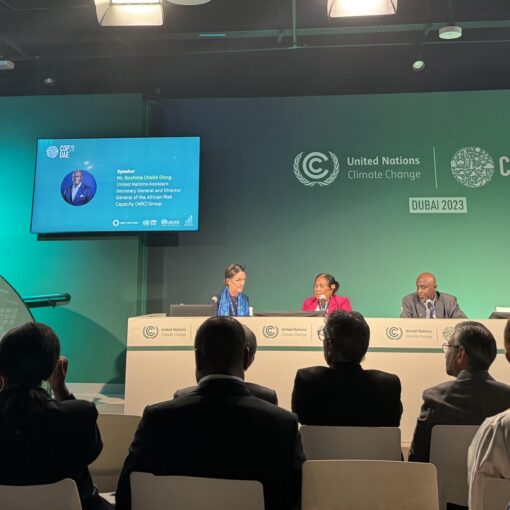On Monday, December 5, the Sabin Center filed written observations as a third-party intervener at the European Court of Human Rights (ECtHR) in Verein KlimaSeniorinnen and others v Switzerland. The case was brought in November 2020 by a group of senior women who allege that their health is threatened by heat waves worsened by the climate crisis and that the Swiss government, by failing to adequately address that crisis, violated their human rights. The women applied to the ECtHR for a ruling after they exhausted all remedies available at the national level, with the final decision from the Swiss Supreme Court communicated to the parties in May 2020. The Supreme Court rejected an appeal lodged by the plaintiffs, holding that the plaintiffs’ asserted rights had not been affected with sufficient intensity, and that the remedy they sought must be achieved through political rather than legal means (see Association of Swiss Senior Women for Climate Protection v. Federal Department of the Environment Transport, Energy and Communications (DETEC) and Others).
The application to the ECtHR listed three main complaints: (1) Switzerland’s inadequate climate policies violate the women’s right to life and health under Articles 2 and 8 of the European Convention on Human Rights (ECHR); (2) the Swiss Federal Supreme Court’s rejected their case on arbitrary grounds, in violation of the right to a fair trial under Article 6 of the ECHR; and (3) the Swiss authorities and courts did not deal with the content of their complaints, in violation of the right to an effective remedy in Article 13 of the ECHR. On April 26, 2022, the seven-judge Chamber of the ECtHR relinquished jurisdiction in favor of the Grand Chamber of the Court, meaning that the case will be heard by a larger group of 17 judges. The Grant Chamber will examine the case directly because it raises a serious question affecting the interpretation of the ECHR.
The Sabin Center’s intervention provided a comparative perspective of global climate change litigation and the intersection of international human rights law and climate change law, and focuses on two central issues:
- Victim status in climate cases:
Central to the case is whether the applicants – a group of senior women – can be regarded as existing and/or potential victims under the ECHR, as interpreted by the Court, on account of an alleged omission of the Swiss authorities to afford applicants adequate protection against the effects of climate change. The Sabin Center’s intervention focuses on existing case law from international and national fora to demonstrate that this is a question of merit and that the applicants should be given an opportunity to provide that Swiss government’s alleged failure to adequately address climate change caused them particularized individual harms. There are at least two reasons for this.
First, proper assessment of the applicants’ claims may well require a direct engagement with the substantive obligations of states as they pertain to climate mitigation, as well as the potential human rights violations related to these obligations, or lack thereof. Second, the analysis may involve a range of scientific assumptions, or even speculation, related to questions of the nature and extent of injury, sources of harm and causation, and redressability through the courts, giving rise to the need for the kinds of fact-intensive inquiries, presentations from competing experts, and weighing of evidence that only comes through a more thorough judicial treatment. These observations relied on the case law recently developed by the Human Rights Committee (see here and here), as well as (see e.g., here and here).
- Principles of separation of powers and the role of the judiciary in climate change litigation
The Sabin Center’s intervention also discusses the separation of powers and the judiciary’s role in climate litigation. This case, as well as two other pending cases at the Grand Chamber at the ECtHR, presents an opportunity for the Court to address the separation of powers principles that might guide human rights courts in assessing climate-related human rights claims. Specifically, the ECtHR has asked whether, given its “margin of appreciation” in environmental matters, the Swiss government had fulfilled its obligations under the ECHR. This question has been widely contested in climate litigation. The Sabin Center’s intervention sought to assist the Court by providing a comparative context and illustrations of how courts in other settings have addressed related questions.
Broadly construed, courts have addressed in three different ways this core separation of powers issue as it pertains to a state’s discretion in fulfilling the obligation to mitigate GHG emissions. First, courts have found that nations are given limited deference and that courts must provide judicial review where government action or inaction threatens human rights. Second, courts have found that courts are authorized to provide judicial review of the legality of government action or inaction, but that states hold a great deal of discretion in establishing ultimate climate targets. And third, courts have found that they cannot dictate particular standards or remedies on the issues of the appropriateness of a state’s mitigation action (or lack thereof), even where the Court may grant certain forms of declaratory relief.
After the ECtHR analyzes all submissions, it is expected to hold a hearing April or May 2023, and reach a decision later that year or in early 2024.
Dr. Maria Antonia Tigre is the Director of Global Climate Litigation at the Sabin Center for Climate Change Law at Columbia Law School.





